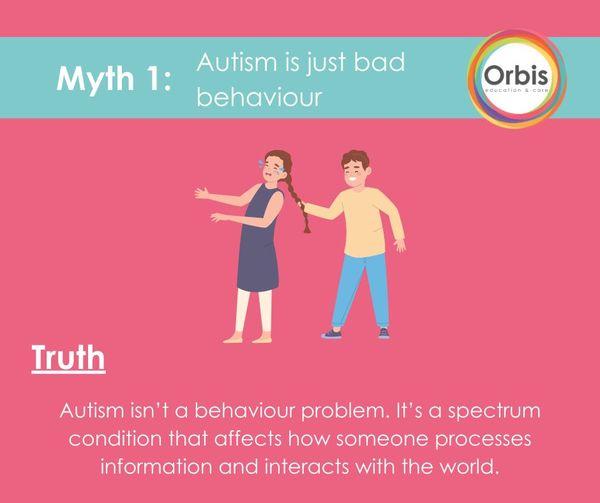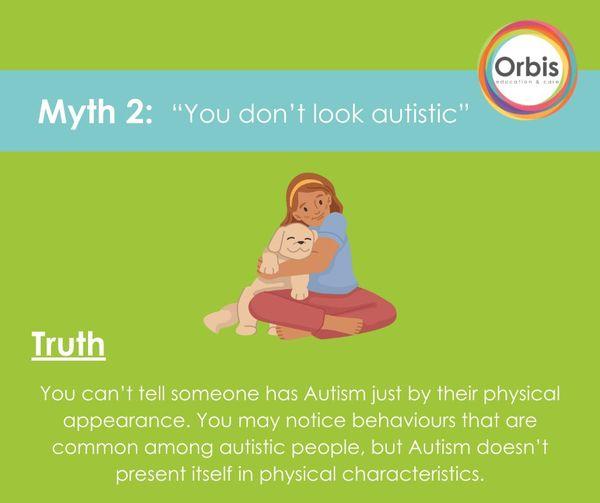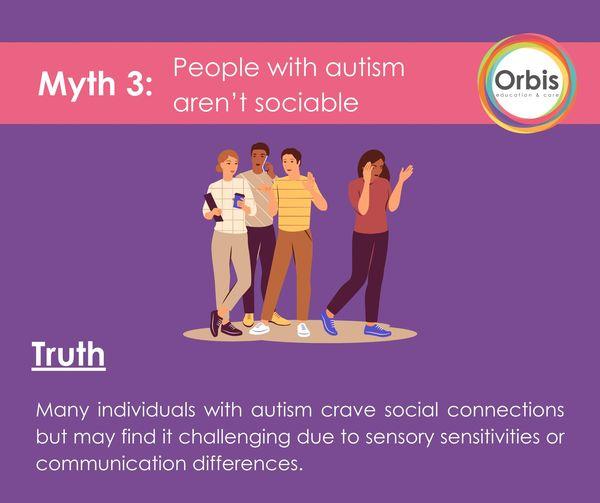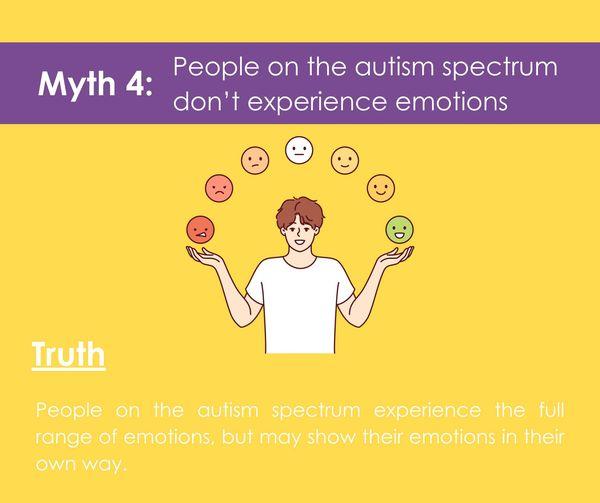
4th April 2024
Autism Acceptance Week - Debunking Autism Myths
As we celebrate Autism Acceptance Week this week, we thought we'd debunk some common Autism myths.
Our first myth is that Autism is just bad behaviour. In truth, Autism isn't about behaving badly. It's a spectrum condition that means individuals think and experience the world in a different way. While people with Autism may struggle with communication and social interactions, they have many unique strengths, too!
Our second myth is that someone doesn't look autistic. Autism isn't defined by appearance. It's a spectrum condition, meaning it affects individuals differently. While some may exhibit stereotypical traits associated with Autism, others may not outwardly display them. Autism manifests in various ways, and every individual with Autism is unique.
Our third and most common One of the most common myths around Autism is the belief that individuals with Autism aren't sociable.
The truth behind the myth is that the social experiences and expressions of autistic individuals can often differ from those of neurotypical people, but this does not mean they lack the capacity or desire for social connection. Many autistic individuals crave social interaction and meaningful relationships just like anyone else. However, they may face challenges in social communication, understanding social cues, and navigating social situations, which can sometimes lead to misunderstandings or misinterpretations of their sociability.
Our final common Autism myth is that individuals with Autism don't experience emotions.Those with Autism do indeed feel emotions, just like anyone else. However, the way they express, interpret, and experience emotions may differ from what is considered typical.They may have difficulty recognising and interpreting the emotions of others due to challenges with social communication and understanding nonverbal cues. This can sometimes lead to the misconception that they don't experience emotions themselves. However, this is far from true. Individuals with Autism experience emotions just as intensely as neurotypical individuals, if not more so in some cases.


